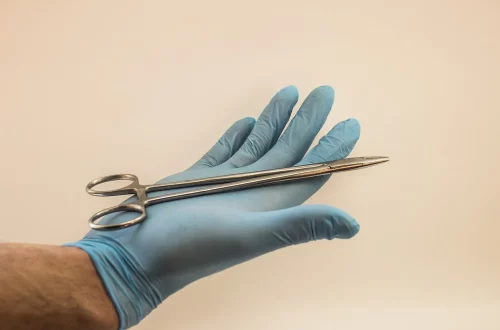
Can Ducks Eat Peanuts? A Guide to Feeding Your Feathered Friends
Ducks are charming creatures that bring joy to many gardens, ponds, and backyards. Their playful antics and quacking sounds can brighten anyone’s day. As more people become interested in backyard farming and raising ducks as pets, questions about their diet and nutritional needs arise. Understanding what to feed ducks is crucial, not only for their health but also for their happiness and productivity. One common question that often comes up is whether ducks can eat peanuts. Peanuts are a popular snack for humans and are often found in various forms, from roasted to salted. However, the dietary needs of ducks are quite different from those of humans, leading many to wonder if these little birds can indulge in this type of nut.
When considering what to feed your ducks, it’s essential to remember that their diets should be well-balanced and suited to their natural foraging habits. Ducks are omnivores and can enjoy a variety of foods, including grains, vegetables, and insects. However, not all human foods are suitable for them, and some can even be harmful. Therefore, it’s vital to explore the implications of feeding ducks peanuts and how it fits into their overall diet.
Understanding the potential benefits and risks associated with peanuts can help duck owners make informed decisions. It’s not just about whether ducks can eat peanuts; it’s also about how often and in what quantities. This guide aims to shed light on the complexities of feeding these feathered friends, ensuring that they live happy and healthy lives.
Can Ducks Safely Consume Peanuts?
When it comes to feeding ducks, safety should always be the top priority. Peanuts, in their raw form, are generally safe for ducks to eat in moderation. However, there are several factors to consider before tossing a handful of peanuts to your feathered friends.
Firstly, it’s important to note that not all nuts are created equal. While peanuts are technically legumes, they are commonly classified as nuts due to their taste and texture. Ducks can digest peanuts, but they should not be a primary food source. The high-fat content in peanuts can lead to obesity if fed in excess. Ducks have a unique digestive system that requires a balanced diet to maintain their health, and overindulging in fatty foods can disrupt this balance.
Secondly, the preparation of peanuts matters. Raw peanuts can contain harmful molds that produce aflatoxins, which can be toxic to ducks. To ensure safety, always feed your ducks roasted peanuts without added salt or seasoning. Avoid giving them peanut butter or processed peanut products, as these can be overly rich and hard for ducks to digest properly.
Lastly, moderation is key. Ducks can enjoy peanuts as a treat, but they should not make up a significant portion of their diet. A good rule of thumb is to limit peanut consumption to a small handful occasionally, ensuring that the primary diet remains focused on grains, vegetables, and other natural foods.
The Nutritional Value of Peanuts for Ducks
Peanuts contain several nutrients that can be beneficial for ducks when offered in moderation. These include protein, healthy fats, and various vitamins and minerals. For ducks, protein is essential for growth, feather development, and overall health. The protein content in peanuts can support these needs, especially during their growth phases.
In addition to protein, peanuts are high in fats, particularly unsaturated fats, which can provide energy. Ducks need energy for their daily activities, including swimming, foraging, and maintaining their body temperature. However, it’s crucial to balance fat intake with other nutrients to prevent health issues, such as obesity or fatty liver disease.
Peanuts also contain vitamins and minerals such as vitamin E, magnesium, and phosphorus. Vitamin E is an antioxidant that can help support the immune system, while magnesium and phosphorus play roles in bone health and energy metabolism. While these nutrients can be beneficial, ducks can get adequate amounts from a well-balanced diet that includes grains, greens, and insects.
It’s also worth mentioning that ducks are natural foragers. They thrive on a varied diet that mimics their natural feeding habits. Including peanuts as an occasional treat can be a fun way to enrich their diet, but relying heavily on any single food source, including peanuts, can lead to nutritional deficiencies.
Alternative Treats for Ducks
While peanuts can be a delightful occasional treat for ducks, there are numerous other foods that can be offered to enhance their diet without the risks associated with nuts. Ducks are omnivorous and enjoy a wide range of foods, many of which are readily available.
One of the best options for ducks is leafy greens. Vegetables like spinach, kale, and lettuce provide essential vitamins and minerals, and ducks love to forage through them. These greens can be offered fresh or chopped to make it easier for ducks to eat.
Grains are also a great addition to a duck’s diet. Duck pellets, corn, and oats are common choices that can provide necessary carbohydrates and protein. Whole grains can be scattered on the ground to mimic natural foraging, encouraging ducks to engage in their instinctual behaviors.
Insects and worms are another nutritious option. Ducks are natural foragers and enjoy searching for bugs, slugs, and worms in the soil. These protein-rich foods are excellent for supporting growth and health, especially in young ducks. You can also offer mealworms as a treat, which are highly nutritious and loved by ducks.
Fruits can also be included in their diet, but in smaller quantities due to their sugar content. Ducks can enjoy berries, grapes, and chunks of melon or apple, but always ensure that these are cut into manageable pieces to prevent choking.
In summary, while peanuts can be included in a duck’s diet occasionally, there are many other nutritious and safer alternatives that can provide a balanced diet. Ensuring variety in their food will not only support their health but also keep them engaged and happy.
Conclusion: Feeding Ducks Responsibly
Feeding ducks can be a rewarding experience, but it comes with responsibilities. Understanding what ducks can and cannot eat is crucial for their health and well-being. While peanuts can be a tasty treat in moderation, they should not be a staple in a duck’s diet due to their high-fat content and potential health risks associated with raw forms.
It’s essential to focus on a balanced diet that includes grains, vegetables, insects, and occasional fruits. By diversifying their food sources, you can ensure that your ducks receive all the nutrients they need to thrive.
Moreover, always observe your ducks for any adverse reactions after introducing new foods. Each duck is unique, and while one may enjoy peanuts without issue, another may not tolerate them well.
In conclusion, keeping ducks healthy and happy requires knowledge and thoughtful feeding practices. By providing a varied diet and understanding the role of different foods, including peanuts, you can contribute positively to their lives. Remember, when in doubt about your duck’s diet or health, consult an avian veterinarian for tailored advice.
*This article is for informational purposes only and does not constitute medical advice. For any health concerns regarding your ducks, please consult a qualified veterinarian.*




